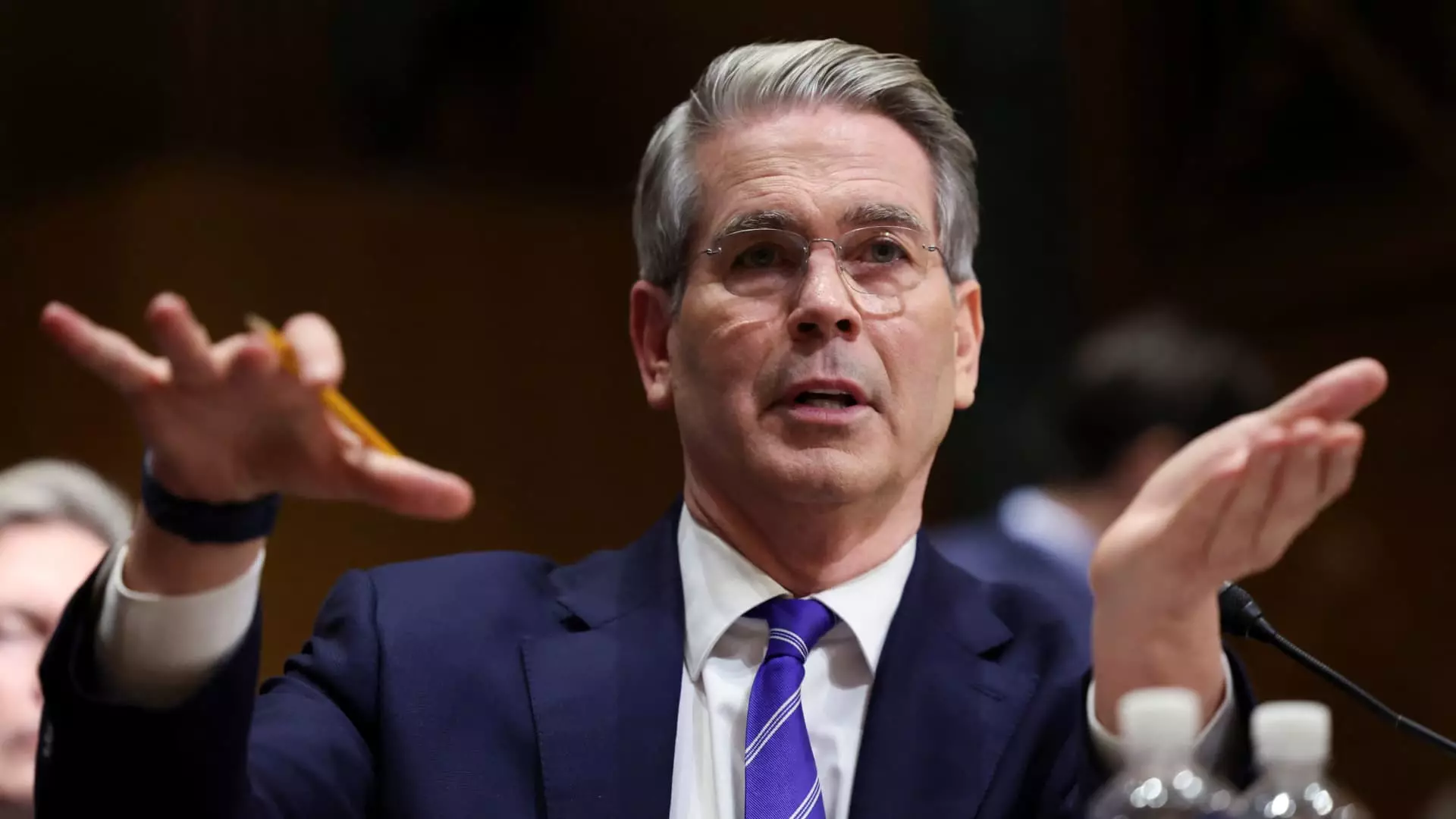In an era where global trade dynamics are continuously shifting, the rhetoric emanating from U.S. Treasury Secretary Scott Bessent reveals a troubling overconfidence. Bessent, in a recent interview, touted a supposed American advantage over China in the escalating trade war, claiming that China is “playing with a pair of twos.” This choice of metaphor, although colorful, reflects a dangerous simplification of a much more complex global economic battle. The perception that the U.S. has the upper hand in trade negotiations is not merely misguided; it risks underestimating the Chinese economy’s resilience and strategic maneuverability.
The assertion that the U.S. exports only a fraction of what it imports from China, thus suggesting that levying tariffs inflicts minimal pain on American interests, reveals a profound misunderstanding of economic interdependence. This oversimplification ignores the intricate web of global supply chains, where the impact of tariffs reverberates far beyond the immediate financial transactions. As businesses scramble to adapt, the costs may ultimately fall on American consumers and industries reliant on affordable Chinese goods and components.
A Gamble with Reckless Abandon
In a move reminiscent of high-stakes poker, Bessent’s comments imply a confidence bordering on arrogance. He heralds tariffs as a tool for negotiation, projecting a belief that if the U.S. erects a strong enough trade barrier, countries will flock to the negotiating table. Yet, this is a gamble fraught with enormous risks. While Bessent mentions that Japan features prominently among countries eager to engage in dialogue, he glosses over the potential backlash and resistance from nations unwilling to be coerced into unfavorable agreements. The notion that the U.S. can set the terms for international trade without facing serious repercussions misjudges the global response—one that includes strategic countermeasures from other nations.
Furthermore, the rhetoric of “bringing jobs back” and generating revenue from tariffs sounds appealing in theory, but in practice, it often results in an economic backlash. The manufacturing jobs that Secretary Bessent envisions returning may remain elusive, as businesses adapt to new realities. A U.S.-focused production landscape might usher in higher costs and inefficiencies, diminishing the competitive edge that underpinned America’s preeminence in the first place.
Flawed Metrics and Hidden Threats
Bessent’s fixation on tariff revenues conveniently overlooks critical economic realities. The concept of tariffs as a “melting ice cube” suggests an optimistic forecast for the future of American manufacturing, yet it risks becoming a stagnant approach that ignores the rapidly evolving tech landscape and shifting consumer preferences. The notion that labor markets will magically adjust to absorb the impacts of tariffs on dwindling trade may prove to be a mirage.
Moreover, the focus on “non-tariff barriers” such as currency manipulation and Europe’s value-added tax highlights a deeper issue—the difficulty in quantifying the multifaceted methods countries deploy to protect their economies. Bessent himself notes the “insidious” nature of these barriers, which raises the question: is the U.S. prepared to tackle these issues comprehensively, or is this merely another instance of rhetoric designed to rally domestic support under the guise of protectionism?
The Broader Impact on American Society
As the U.S. continues to navigate these treacherous waters, it is essential to reflect on the larger societal implications of a trade war driven by overstated confidence. The narrative that pits the U.S. against China can quickly morph into a nationalist sentiment that alienates Americans from the global community. The dangers of inciting economic conflict extend beyond financial markets, potentially fostering an environment of division and uncertainty.
In light of this, the media’s role in disseminating government assertions uncritically presents a risk of misinforming the public. It is vital for analysts and commentators to peel back layers of jargon and euphemism to reveal the actual stakes involved. Glorious platitudes about job returns and skirmishes with China cannot disguise the reality that American citizens face a potential economic upheaval that may jeopardize their livelihoods.
The time has come to approach trade not as a battleground but as an arena for collaboration. By fostering dialogues that prioritize mutual benefit, the U.S. can reclaim its status not merely as a dominant power but as a constructive participant in global trade relations. The echo chamber of triumph and bravado must give way to a more nuanced understanding of the intertwined economies of the world, where cooperation can yield far greater rewards than conflict ever could.

